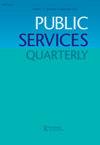利用开放教育资源促进社会公正
Q3 Social Sciences
引用次数: 0
摘要
关注、一系列问题或对某一主题的热情,并通过持续的互动加深他们在这一领域的知识 和专长"(第 vii 页)。毫无疑问,许多学术图书馆员都有一系列共同的关注点、问题和热情,这些都可以作为一个富有成效且具有专业支持性的实践社区(CoP)的基础,在这本简短的九章书中,Reale 将带领读者了解创建一个成功的实践社区所必需的策略。Reale 以她自己在图书馆建立 CoP 的努力为框架,描述了她最初创建 CoP 的失败经历。事实上,在整本书中,Reale 毫不避讳地分享了自己在建立合作 伙伴关系过程中遇到的困难,以及在合作 伙伴关系开始运行后出现的失误或误解。Reale 的语气娓娓道来,有时让人觉得她就像一位好朋友一样在倾诉。不过,她也提供了大量有关支持 CoPs 的原则和结构的理论背景,这将使读者对实施 CoPs 所需的用心工作有更深刻的理解。每一章都提供了大量相关主题的学术参考资料,如学习风格、归属感、社区建设、协作对话、讲故事和变革性学习等。此外,每章还包括一个总结部分和一个 "思考要点"。后者不仅为读者提供了值得思考的问题,还提供了在合作小组会议期间可以讨论或做的事情。在第 8 章中,Reale 解读了 "欣赏式探究",解释了它在图书馆员中的应用,并强调了 "5-D 循环",它在 CoP 中的应用非常明显。虽然本章有些内容重复了之前的内容,但本章和最后一章将是 CoP 成员希望反复阅读的内容。在第 9 章中,Reale 2017 年的专著名为《成为反思型图书馆员和教师》(Becoming a Reflective Librarian and Teacher:的专著《成为反思型图书馆员和教师:正念学术实践策略》中,他有力地说明了为什么个人实践中的正念技术是实施 CoP 的基础。在本书结束时,读者会明白,如果社区中的每个人都能将最好的自己带入社区,那么每个人和社区都将受益匪浅。本书最后,Reale 说她希望自己的 CoP 指南与其说是一本手册,不如说是一本 "充满希望和创造力的问题解决社区指南"(第 96 页)。实际上,Reale 所写的这本著作成功地既是一本实用手册,又给图书馆员带来了积极的启发,令人钦佩。本文章由计算机程序翻译,如有差异,请以英文原文为准。
Using open educational resources to promote social justice
cern, a set of problems, or a passion about a topic, and who deepen their knowledge and expertise in this area by interacting on an ongoing basis” (p. vii). Without question, many academic librarians share a set of concerns, problems, and passions that may serve as the basis for a productive and professionally supportive Community of Practice (CoP), and in this brief, nine-chapter book, Reale takes the reader through the strategies necessary to create a successful CoP. Reale uses her own efforts to establish a CoP at her library as a framing device and describes her initial failure to get a CoP off the ground. In fact, throughout the book, Reale does not shy away from sharing her own struggles both in establishing the CoP and those false starts or misunderstandings that occurred once one was in operation. Reale’s tone is conversational, and at times it feels as though she’s confiding as a good friend might. However, she also offers a great deal of theoretical background to the principles and structures supporting CoPs, which will supply readers with a deeper understanding of the intentional work that will be required to implement a CoP. Each chapter provides ample references to scholarship on such related topics as learning styles, sense of belonging, community building, collaborative conversations, storytelling, and transformative learning. Additionally, each chapter includes a summary section and a “Points to Ponder.” The latter gives the reader not just things to think about but also things to discuss or do during CoP meetings. In Chapter 8, Reale unpacks “appreciative inquiry,” explaining its applications for librarians and highlighting the “5-D Cycle,” which has such clear application for CoPs. While some of this chapter repeats earlier content, this and the final chapter will be ones that members of a CoP will want to return to again and again. In Chapter 9, Reale, whose 2017 monograph was titled Becoming a Reflective Librarian and Teacher: Strategies for Mindful Academic Practice, makes a strong case for why mindfulness techniques for individual practice are foundational for the implementation of a CoP. By the end of this book, the reader will understand that each individual and the CoP will benefit most when the community comprises individuals who bring their best selves to the community. This book concludes with Reale saying she hoped that her guide to CoPs was less of a manual and more of a “hopeful and generative guide to being in a problem-solving community” (p. 96). Reale has written a work that actually succeeds admirably at being both a practical manual and a positive inspiration to librarians.
求助全文
通过发布文献求助,成功后即可免费获取论文全文。
去求助
来源期刊

Public Services Quarterly
Social Sciences-Library and Information Sciences
CiteScore
0.90
自引率
0.00%
发文量
38
期刊介绍:
Public Services Quarterly covers a broad spectrum of public service issues in academic libraries, presenting practical strategies for implementing new initiatives and research-based insights into effective practices. The journal publishes research-based and theoretical articles as well as case studies that advance the understanding of public services, including reference and research assistance, information literacy instruction, access and delivery services, and other services to patrons. Articles may examine creative ways to use technology to assist students and faculty. Practice-based articles should be thoroughly grounded in the literature and should situate the work done in one library into the larger context of the situation.
 求助内容:
求助内容: 应助结果提醒方式:
应助结果提醒方式:


